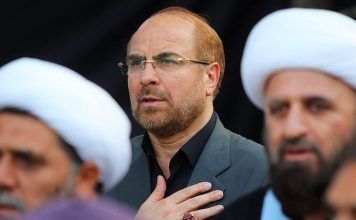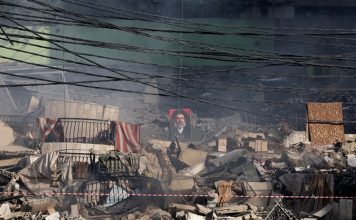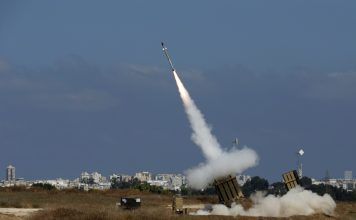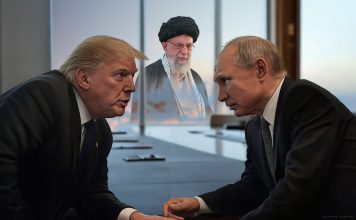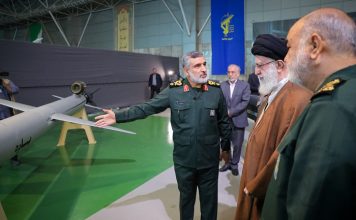
By Ahmad Rafat
Ismail Haniyeh, the head of Hamas’s political office, was killed in Tehran on July 31. In response, the Islamic Republic quickly announced its plan to take retaliatory action against Israel, even though the Israeli government has admitted no involvement in Haniyeh’s assassination and is unlikely to do so in the future.
Meanwhile, the Islamic Republic’s military commanders have called for “harsh retaliation” against Israel, raising concerns within the international community that the responses from Tehran and Tel Aviv could ignite a new, extensive conflict in the Middle East.
However, neither the Islamic Republic nor Israel is keen to pursue a prolonged and widespread war. Also, the Islamic Republic has previously shown a lack of preparedness to respond promptly when confronting aggression, which has the potential to escalate into a new conflict.
Israeli Minister Tells US That Large-Scale Iranian Attack Expected, Axios Reports
On Jan. 3, 2020, American forces conducted a drone strike at Baghdad International Airport, killing Lieutenant-General Ghasem Soleimani, the former commander of the Qods Force (QF), the extraterritorial wing of the Islamic Revolutionary Guard Corps (IRGC).
In response to Soleimani’s assassination, the Islamic Republic took symbolic action just five days later by launching a ballistic missile attack on al-Asad Airbase (also known as Qadisiyah Airbase) in western Iraq, striking an unoccupied section of the base, causing no casualties or injuries to U.S. personnel or Iraqi staff stationed at the airbase.
On April 1 of this year, the Israeli air force conducted a bombing raid on a building in Syria’s capital owned by the Islamic Republic. This military operation resulted in the deaths of a dozen IRGC commanders, including Major-General Mohammad Reza Zahedi — who allegedly played a role in the Oct. 7 Hamas attack on Israel — resulting in the deaths of approximately 1,200 people and the abduction of around 250 hostages.
Thirteen days later, the Islamic Republic responded by launching over 300 missiles and drones towards Israel. Notably, approximately 98 percent of these projectiles were successfully intercepted and destroyed by Israeli air defense systems, which are supported by the U.S., the U.K., France, and even some Arab nations like Jordan and Saudi Arabia.
Two missiles hit the Nevatim Airbase in the Negev desert, where F-35 fighter jets are stationed. However, the damage was limited to the destruction of one empty hangar.
Considering the aftermath of the Haniyeh assassination, there is considerable speculation about the extent of the Islamic Republic’s response, which is expected to occur after Aug. 15.
On Aug. 9, Iran’s ambassador to the United Nations, Amir Saeed Iravani, emphasized the Islamic Republic’s right to act in response to Israel. “Our reply will be timely and conducted in a manner that preserves the potential for a ceasefire,” said Iravani.
Iravani was referring to the ceasefire negotiations set to start on Aug. 15 in either Doha or Cairo, involving Israel and Hamas, with mediation from Qatar, Egypt, and the U.S. These discussions aim to establish a ceasefire in Gaza and facilitate the release of Israeli hostages.
The Islamic Republic is compelled to respond to the assassination of the head of Hamas’s political office. This incident has severely undermined the credibility of Iran’s security institutions, both domestically and internationally.
Concurrently, Israel’s security forces, which faced scrutiny following the Oct. 7 attack by Hamas, have restored their reputation through the successful assassination of Haniyeh and one of his bodyguards in Tehran. This operation is viewed as a significant embarrassment and setback for the Islamic Republic.
While the Islamic Republic is involved in internal deliberations regarding its response to the assassination of Haniyeh, it is simultaneously under external pressure from the international community to exercise restraint — aiming to prevent an escalation that could lead to a new conflict in the Middle East.
Ali Saeedi-Shahroudi, who leads the Political and Ideological Office of Iran’s Supreme Leader Ali Khamenei, articulated the current stance of the Iranian government succinctly. “There are only three options,” he said. “The first option is to fight, which is not in our interest because we have never sought nor are we seeking war; the second option is to surrender, which nullifies all previous victories and successes; and finally, the third option is the strategy of active resistance.”
Iran Government Set to Carry out Leader’s Order to ‘Harshly Punish’ Israel, Official Says
Starting a war in the current climate is not in the Islamic Republic’s interest. From a military standpoint, the Israeli army possesses significant air superiority, coupled with advanced anti-missile and anti-drone defense systems. There is also a risk that other nations could become involved in this conflict, either directly or indirectly, which poses a threat to the regime’s very existence.
Over the past 45 years, particularly in the last three decades, the Islamic Republic has consistently avoided any conflicts — whether military or political — that might jeopardize its survival.
Saeedi-Shahroudi argues that surrendering would mean losing the Islamic Republic’s only bargaining power with global and regional powers.
The Islamic Republic perceives itself as a regional authority that has established its influence by backing terrorist and paramilitary organizations and fostering unrest and instability. Therefore, the absence of any significant response raises doubts about the Islamic Republic’s status as a regional power.
Saeedi-Shahroudi refers to the third approach as “active resistance,” which can be understood as employing proxy forces to target Israel and its allies.
Individuals close to Massoud Pezeshkian, the newly elected Iranian President chosen by Khamenei, have reported that during a recent meeting with Khamenei, he expressed his disapproval of a direct military assault on Israel. Instead, Pezeshkian reportedly proposed that the response to Haniyeh’s assassination should be conducted through proxies, particularly by Lebanese Hezbollah and Yemeni Houthis.
Those familiar with Pezeshkian’s views say that he holds the belief that if the Islamic Republic were to execute attacks, these should not target Israeli territory directly.
Instead, Pezeshkian reportedly believes that such actions should be directed towards both official and unofficial representatives of Israel, as well as Jewish communities, in the Kurdistan Region of Iraq or the Republic of Azerbaijan.
The assaults conducted by proxy groups under the Islamic Republic’s control, including Hezbollah and the Houthis, against Israel have been occurring for an extended period. According to reports from the region, these attacks may escalate soon.
The recent assaults by Iran’s regional proxies are not limited to Israel alone.
On August 9, a drone strike targeted a U.S. military installation in Syria, resulting in injuries to several U.S. soldiers. Another rocket attack occurred at the al-Asad air base in Iraq in the same month, injuring five American service members.
These incidents serve as a stark reminder to the U.S. that any military involvement in supporting Israel could lead to repercussions for American forces stationed abroad.
The Pezeshkian administration reportedly plans to enhance the military capabilities of its proxy groups by supplying them with new armaments destined for Lebanon, Iraq, and Yemen, enabling these forces to intensify their operations against Israel.
The strategy of the Islamic Republic has included assaults on Israeli diplomatic missions and Jewish organizations.
Notable instances of this strategy include the bombing of the Israeli embassy in Buenos Aires on March 17, 1992, and the attack on the Jewish community center that occurred on July 18, 1994.
More recently, the IRGC has claimed that they have conducted missile strikes targeting Israeli advisers in various areas within the Kurdistan Region of Iraq.
The Islamic Republic’s muted response to Israel’s assassination of Haniyeh has sparked criticism from various factions within Iran, particularly among members of the IRGC-QF, as well as among regional proxy groups backed by Tehran.
Elements within Hezbollah in Lebanon, Hamas, and Palestinian Islamic Jihad reportedly expected a more robust retaliation from Tehran following its missile and drone strikes on Israel on April 13.
While Tehran has managed the discontent thus far, if it persists, the disagreement could sour the relationships between these proxy forces and the Islamic Republic.
In such a scenario, groups like the Yemeni Houthis and certain Iraqi factions could operate with greater autonomy from Iran’s ruling regime, potentially undermining the Islamic Republic’s regional strategies.




